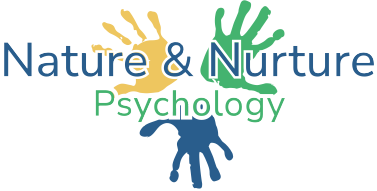What we do
Assessment of attachment & trauma
An Overview
Our comprehensive psychological assessments of children and families can help shed light on why difficulties are occurring, and practical steps to help. We take referrals from social workers, family support agencies, and directly from families. Our experienced team specialises in working with children who are in care, and children and families post adoption, and special guardians.
The assessment of attachment and trauma related difficulties
Referral
Please complete our referral form online if you would like to enquire about our comprehensive psychological assessments. Social workers, family support agencies, schools, or parents and guardians may wish to contact us via phone, email, or the referral form to find out more information. We discuss referrals weekly, and will get back to you within five working days about a plan for assessment. Our coordinators are happy to informally discuss any referrals to share how we can help.
Information gathering and school liaison
Before and during the assessment, our team gathers relevant information to aid the overall assessment. This includes reviewing relevant reports, previous assessments, contacting professionals who are involved in supporting the child, and liaising with school. We also undertake school observations for primary school aged children, and interview teachers in both primary and secondary education with consent.
Parent or Caregiver Session
This session enables the parent or caregiver to freely explain the challenges they have been facing, and to give as much information about their perspective, and about their child. For parents who have adopted, this includes giving an adoption history, and details about their child’s early life. Our supportive therapists are highly skilled, and will ensure that caregivers feel listened to, supported, and understood.
Cognitive assessments
Children who have experienced early trauma, may have experienced events and situations that may have impacted upon their cognitive development. This may be currently affecting their ‘thinking skills’ and how they are doing at school, and how they manage being in the classroom. If we have concerns about a child’s cognitive development, we will undertake further assessments to highlight any reasons for this, and what aspects of their thinking skills have been affected. As standard, we will also assess for any neurodevelopmental differences such as autism, intellectual disability, and the impact of drug or alcohol exposed pregnancies on the neurodevelopment of the young people we see, and the outcome of these assessments are included in the main report.
Child session
We undertake child friendly sessions at our peaceful therapy rooms at Hawkesyard Estate. Parents and caregivers are invited into these sessions also, with consent from the child, as children often feel more at ease having their parent or caregiver with them. Equally, some older young people may feel comfortable to speak to a therapist on their own. These sessions are catered to the developmental age of the child, and therefore may involve a mix of play, activities, along with talking and exploration of current difficulties. These sessions are conducted sensitively, and at the pace of the child, by our highly trained psychologists and therapists.
Feedback and recommendations
We invite the child and / or parents or caregivers back for a feedback session. This is where we provide a compassionate, non-judgmental understanding of what may have led to the current challenges, what is keeping them going, and our plan for how we will be able to help going forward. We make comprehensive recommendations for home, school, and further therapy. Often children who have experienced developmental trauma require support in all areas of their life, not just through individual therapy alone. Our experienced clinicians work systemically with children and families, joining up home, school, and others who are currently supporting the child, to ensure consistency and continuity across environments. We can also support in helping the system around the child to understand and have empathy for the impact of early trauma on a child’s development. Often the main intervention for the impact of early trauma, is support for the parents and caregivers. We offer a range of interventions, and often more than one therapist may work with the family at the same, implementing a comprehensive therapeutic plan. For example, one therapist may work with parents and school, whilst another therapist may work directly with the child. This work is joined up and collaborative to meet the needs of the family.
For more information and enquiries, please contact us:

Meet the team
Get to know the team behind Nature & Nurture Psychology on our meet the team page or fill in the form below to contact us.

